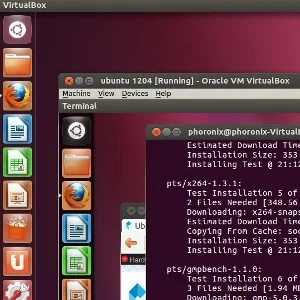OpenVZ & Parallels Cloud Server To Merge Into Open-Source Virtuozzo Core

Parallels posted the day after Christmas to the OpenVZ blog, "It was 2005 when we finally realized we made a mistake of not employing the open source development model for the whole project from the very beginning. This is when OpenVZ was born as a separate entity, to complement commercial Virtuozzo (which was later renamed to Parallels Cloud Server, or PCS for short). Now it's time to admit -- over the course of years OpenVZ became just a little bit too separate, essentially becoming a fork (perhaps even a stepchild) of Parallels Cloud Server. While the kernel is the same between two of them, userspace tools (notably vzctl) differ. This results in slight incompatiblities between the configuration files, command line options etc. More to say, userspace development efforts need to be doubled."
In realizing now they did the wrong move back then, they are going to merge OpenVZ and Parallels Cloud Server into a single, common, open-source code-base. This will particularly benefit OpenVZ users and in early 2015 they will be opening the Git repository to their RHEL7-based Virtuozzo kernel. OpenVZ is a Linux virtualization/containers technology for those out of the loop.
Parallels is also opening their kernel development list so that the community developers can see changes sooner and comment on them. The company will also open up their JIRA instance for bug tracking.
The new name for OpenVZ + Parallels Cloud Server is to be called Virtuozzo Core.
More details via this blog post.
5 Comments

